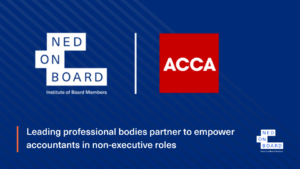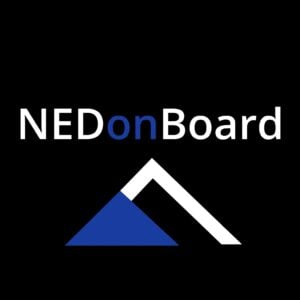Does your Board have a learning and development (L&D) budget for its non-executive directors? Does it have a dedicated budget for its own training needs?
To remain relevant and to be effective, boards are expected to continuously develop their skills, evaluate their performance, and ensure that decision-making is effective. This requires time and commitment, as well as resources.
A dedicated budget for the board reflects a commitment to best governance practices and allows for greater independence from management in fulfilling the board’s duties.
What should the board’s budget cover?
A well-considered board budget may include allocations for the following:
✅ Director training and development.
The environment in which organisations operate changes constantly, and non-executive directors are expected to remain current. Formal training and professional development—whether through attending events, undergoing bespoke training, or engaging in continuing professional education—are crucial for maintaining a high level of competence. A specific budget for these activities ensures that directors are fully equipped to meet their obligations.
Companies should demonstrate a commitment to the ongoing professional development of their board, and directors should embrace such opportunities and ensure that they have sufficient time to discharge their duties.
– Wates Corporate Governance Principles for Large Private Companies
✅ External legal counsel.
Directors may occasionally require independent legal advice that is separate from the company’s in-house legal team or external counsel. This is particularly relevant in situations involving potential conflicts of interest or when addressing sensitive issues. A dedicated budget for this purpose guarantees that directors have access to impartial advice when needed.
✅ Travel and site visits.
In certain industries, site visits are essential for directors to gain a first-hand understanding of operations. A board budget can include provisions for travel, accommodation, and any necessary protective equipment required for safe visits to operational sites.
✅ Board evaluation and consulting services.
Provision 21 of the Corporate Governance Code states that “there should be a formal and rigorous annual review of the performance of the board, its committees, the chair and individual directors. The chair should commission a regular externally facilitated board performance review.”
Boards typically recognizing the value of regular external performance evaluations. Independent consultants can provide objective insights into board dynamics, identify areas for improvement, and recommend enhancements to governance practices. Budgeting for these services ensures that boards maintain the highest standards of effectiveness.
“Regular evaluation of the board can help individual directors to contribute effectively and highlight the strengths and weaknesses of the board as a whole”.
– Wates Corporate Governance Principles for Large Private Companies
✅ Support for independent action.
One of the most important reasons for establishing a board budget is to allow directors to act independently of management when necessary. Whether for seeking independent governance advice, conducting board reviews, or obtaining expert opinion, directors should not be reliant on management’s financial discretion. A dedicated board budget removes this dependency and strengthens the board’s ability to govern without conflict.
Why a dedicated board budget is essential
While a board-specific budget may not be a legal requirement, it is increasingly seen as a governance best practice. Such a budget allows boards to address their specific needs without burdening the company’s operational budget or placing undue reliance on management. Moreover, it empowers directors to take proactive steps toward their own development and to seek external assistance where appropriate.
Governance and procurement processes
In establishing a budget, we recommend that processes be establish. Clarity around the use of the board’s budget ensures transparency and accountability.
👉 A board’s learning and development budget is more than just a financial allocation; it is a strategic tool that ensures directors have the resources they need to govern effectively. By proactively setting aside funds for training, evaluations, and independent advice, boards can ensure they are meeting the demands of modern governance while preserving their independence and strengthening their overall performance.
To find out about the NEDonBoard training solutions for boards and non-executive directors, click 👇here:




